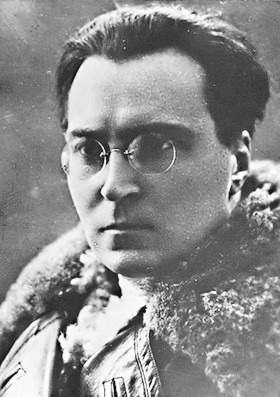By Dave Holmes
[This is the text of a talk given as part of Melbourne Socialist Alliance’s Socialist Ideas Seminar series on July 28, 2010.]
By Dave Holmes
[This is the text of a talk given as part of Melbourne Socialist Alliance’s Socialist Ideas Seminar series on July 28, 2010.]

By Graham Milner
March 7, 2010 -- Born into a family of radical Russian gentry in 1869, Nedezhda (which from Russian translates as "Hope") Konstantinovna Krupskaya became, with her partner V.I. Lenin, a founder and central leader of the organisation of revolutionaries that led the Russian working class to power in October 1917 -- the Bolshevik Party (majority faction of the Russian Social Democratic Labour Party).

To mark International Women's Day 2010, Links International Journal of Socilalist Renewal reproduces Alexandra Kollontai's classic history and explanation of this important anniversary. Thanks to the Marxist Internet Archive (MIA) for making this and other writings by Kollontai available. Notes by MIA.
* * *
By Alexandra Kollontai
Mezhdunarodnyi den' rabotnitz, Moscow 1920 -- Women's Day or Working Women's Day is a day of international solidarity, and a day for reviewing the strength and organisation of proletarian women.
Lenin Rediscovered: What Is To Be Done? In Cont

Review by Paul Le Blanc

By Paul Kellogg
[This article first appeared in Socialist Studies: the Journal of the Society for Socialist Studies 5(2), Fall 2009. It has been posted at Links International Journal of Socialist Renewal with the author's permission.]

The People's Train
By Tom Keneally,
Vintage Books, 2009
Review by Phil Shannon
October 10, 2009 -- When Artem Samsurov first came to Brisbane in 1911, the Russian exile noted that the poor did not eat horse meat like they did in his native country and he wondered whether this did indeed make it true that Australia was a “working man’s paradise”? A diet that was no stranger, however, to rabbit, and bread and lard, suggested otherwise.
Tom Keneally’s latest novel, The People’s Train, follows the political and romantic adventures of Samsurov, a fictional character closely based on Fedor (``Artem'') Sergeyev, a Bolshevik who escaped from exile in Siberia after the crushing of the 1905 revolution in Russia and who was a political activist in Brisbane for six years. [See the Australian Dictionary of Biography's entry for Fedor``Artem'' Sergeyev below this review.]
In regular trouble with the Red-persecuting Queensland police, Sergeyev returned to Russia in 1917 in time to be elected to the central committee of the Bolshevik Party and play a leading role in the Russian Revolution.

[The following exchanges were first published in the US socialist magazine Against the Current. They have been posted at Links International Journal of Socialist Renewal with permission. Susan Weissman is the author of Victor Serge: The Course is set on Hope and editor of The Ideas of Victor Serge and Victor Serge: Russia Twenty Years After. She is a member of the editorial boards of Against the Current and Critique. The first essay is adapted from a section of a paper she delivered at a July 2008 conference on Trotsky’s legacy and first appeared in Against the Current, issue 136, September-October 2008. Following that is a response from Ernie Haberkern and reply by Susan Weissman. Some of Victor Serge's writings are available at the Marxists Internet Archive and at Resistance Books.]
By Susan Weissman